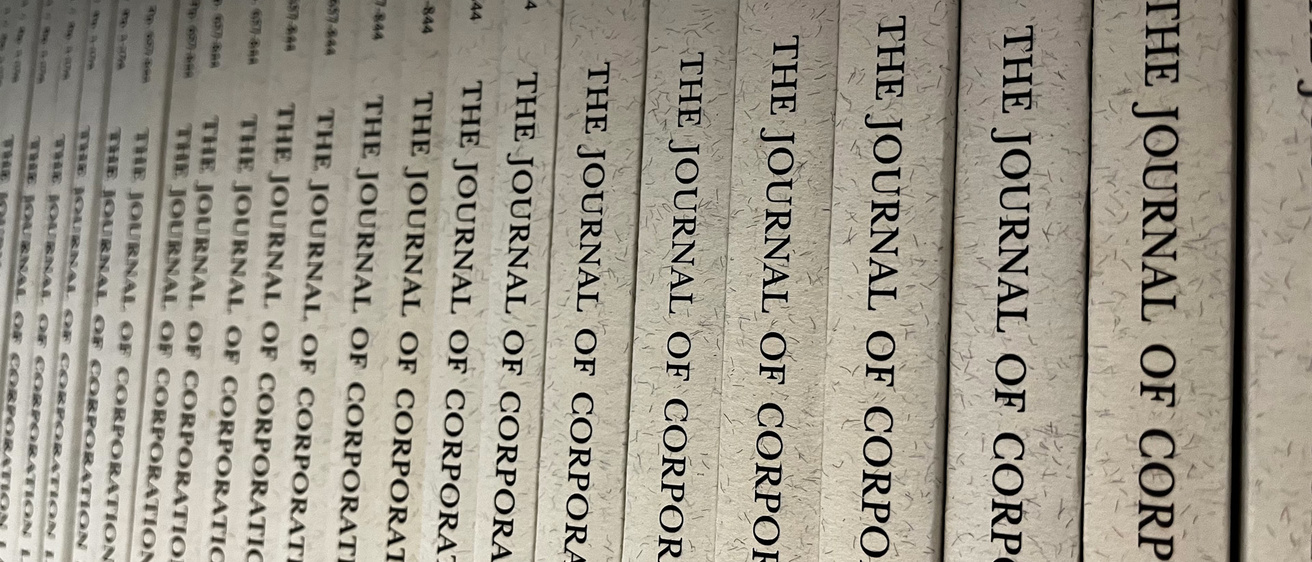For Corporate Hypocrisy
Disgusting. Deplorable. Manipulative. Sinful. Irresponsible. Repugnant. Amoral. Appalling. Unethical. Just plain sick. Those are some of the words used to describe hypocrisy. Even in a polarized environment, one of the things about which we all seem to agree is that hypocrisy is bad. And corporate hypocrisy is particularly abhorrent. From Amazon’s hypocrisy regarding its commitment to workers, to Starbucks’ hypocrisy around its condemnation of racism, to AT&T’s hypocrisy associated with its support of voting rights, corporations perceived to be engaging in hypocrisy have been subjected to a special brand of protests and outrage. We judge corporate hypocrisy more harshly than individual hypocrisy. We also judge the corporate hypocrite more harshly than the corporation that engages in concerning behavior but does not make statements inconsistent with such behavior. Hypocrisy, especially corporate hypocrisy, has even been called the “only unforgivable sin.”
Beyond Wall Street: Inside the Legal Battles of Private Companies
Boardroom battles on Wall Street command national attention. Yet the vast majority of business disputes in the United States do not take place on Wall Street and do not involve public companies. Nearly all American companies are privately held, and the disputes between the owners of these Main Street businesses seldom make headlines. Nor do they receive much attention in legal scholarship. While scholars have examined these disputes from a theoretical perspective, there have been no empirical studies analyzing lawsuits between the owners of private companies. As a result, we do not know why these business relationships fail or the specific risks these business owners face. This Article aims to fill that gap through the first empirical study of litigation between the owners of private companies. This study analyzes hand-collected data from over 700 lawsuits filed in 31 U.S. states and territories. It reveals significant differences between public-company disputes and their private-company counterparts. Most importantly, emotions take center stage in private company disputes, with plaintiffs often alleging that emotional bonds with their business partners caused them to forgo crucial protections. When these bonds break down, the disputes devolve into claims rarely seen on Wall Street: allegations of self-dealing through theft, freeze-outs, unlawful competition, or dilution of ownership interests. Recognizing these unique attributes of Main Street disputes will allow lawyers, judges, and lawmakers to approach business law in ways that more directly serve its largest constituency.
The Limits of Shareholder Ratification
In this Article, I analyze the expanding common law doctrine of shareholder ratification, whereby shareholder approval can, for all practical purposes, absolve directors of fiduciary liability for their conflicted business decisions. Delaware law now allows a shareholder vote to perform substantially more work than ever before. Under prevailing doctrine, in transactions between a company and any party other than a controlling shareholder, shareholder ratification reinstates the business judgment rule and makes it irrebuttable, other than for waste. Substantive judicial review is effectively avoided for such transactions. Despite its extraordinary importance in corporate governance, the shareholder ratification doctrine’s foundations are feeble and its limits uncertain. Theoretically, there is no well-established basis for equating shareholder approval with either the informed, disinterested, and good-faith decision of a board or judicial review. Doctrinally, shareholder ratification’s expansion beyond its traditional context of self-dealing has been a judicial innovation, rather than an elaboration of precedent. And historically, the shareholder ratification doctrine, which originated in early 20th-century state interesteddirector statutes, was motivated by fairness principles that were lost in translation into the common law. This Article recovers the fairness genealogy of the shareholder ratification doctrine and, in doing so, provides useful guidance for the doctrine’s development, limits, and future application.
